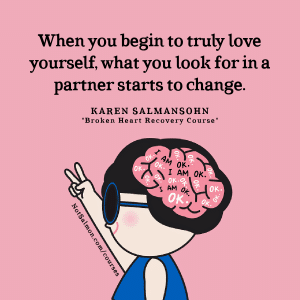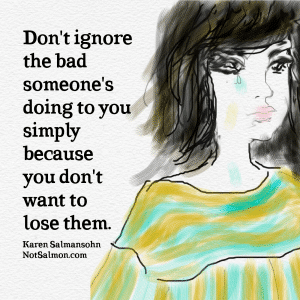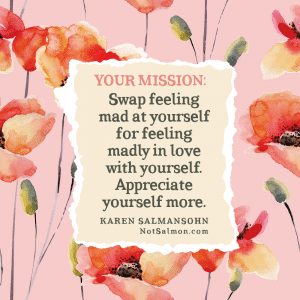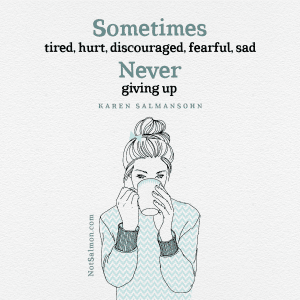 If you’re struggling with the pain of a break up, you’ll benefit from knowing these 8 stages of grief after divorce. Read on…
If you’re struggling with the pain of a break up, you’ll benefit from knowing these 8 stages of grief after divorce. Read on…
Divorce is common around the world. But it’s still something that most people don’t think about when they get married.
On their wedding day (while in front of a judge, priest, or any other officiating minister), couples are serious about their vows to stay together “til death do us part.” So, when a union ends up in separation, some can experience shock and find it difficult to move on.
The process of divorce in itself is emotionally and financially frustrating. According to professionals specializing in divorce, dealing with grief after divorce can be challenging, especially if there are concerns to settle, like child custody or property.
According to experts, marriage studies shows that approximately 39% of marriages in the United States end up in divorce. Although the figure has gone down from a high of 50% in the ’80s, 39% is still a huge number. Unfortunately, this means that there are tons of people left broken-hearted and grieving.
Get Support To Heal From Divorce
If you’re new to my site, I’m the bestselling author of the Oprah recommended relationship recovery book “Prince Harming Syndrome” (which also applies to “Princess Harmings”). Plus I’m the founder of the ground breaking video course: Broken Heart Recovery.
I’m committed to helping people to heal, grow and move on from break ups! In this particular article I’ll be sharing the 8 stages of grief after divorce.
The 8 Typical Stages of Grief After Divorce
If you are in the process of getting a divorce, it may be helpful to know the stages of grief – so you can recognize what phase you’re in. More importantly, it will allow you to realize that, no matter how painful your situation may seem, what you’re experiencing is a normal part of the process. Best of all, you can recover from heartbreak – just as many others have done before you.
 1. This Can’t Be Happening!
1. This Can’t Be Happening!
This stage is typically known as denial. When you learn about your spouse’s plan of filing for the dissolution of your marriage, your first reaction might be shock. “This can’t be happening to us,” would be the first words in your mind.
Even if there are telltale signs that your relationship is on the rocks, you still believe that everything will be fine. You hope this is just a bump in the road, and that you will get back to normal.
Somehow, it’s quite unbelievable for many, especially the ones that have been together for decades, that a divorce will happen to them. Others who have children are holding on to the relationship because they don’t want their kids to experience the complexities of the parents’ divorce.
The denial stage is usually the one that drags out the process of divorce and makes it more difficult.
During this stage, you might wake up in the morning only to realize that your partner isn’t there anymore. Additionally, you might be in denial if you don’t want to take off your wedding ring or are looking for ways to get back together with your partner. This stage can be difficult, but there are steps you can take to cope with denial.
The first step is to give yourself time, as healing usually happens little by little rather than all at once. Afterward, start looking towards the future by making manageable plans.
If this doesn’t seem to help and you start becoming depressed to the point of not functioning, consider getting professional help. This may include going for grief counseling.
Psychologists propose that denial is one of the most common defense mechanisms that people use to separate themselves from bad experiences. If you find yourself in this stage, know that it’s normal and okay because it’s a way for you to cope with emotional stress. However, try not to linger in denial because the longer you deny reality, the longer it will take for you to move on with your life. (Pssst… explore these moving on quotes – and use one as your mobile wallpaper to stay strong and positive.)
 2. Maybe We Can Work Things Out.
2. Maybe We Can Work Things Out.
Bargaining is a fluid stage that can happen anytime during the grieving process. Typically, it comes after the denial stage.
Once you have admitted that the end of your marriage is a very real possibility, your next reaction, unsurprisingly, is to find ways to remedy the problem.
The bargaining stage might lead you to negotiate with fate, the universe, or a higher power. You might also find yourself wishing for a miracle to bring things back to the way they were.
This is where you may ask for another chance at saving the relationship.
Depending on what caused the rift in the first place, you may even be willing to undergo therapy or counseling alone or as a couple.
If you want to try to save your marriage, just make sure that you don’t end up begging and doing everything just to stay in the relationship. Don’t sacrifice everything just to make your marriage work.
Remember: It takes two to tango! In most cases, the two of you should help each other to work things out. If possible, you should do so with the help of your children, family, and friends. If your partner isn’t as invested in trying to find a resolution, don’t waste your effort on them.
 3. How Can You Do This to Me?
3. How Can You Do This to Me?
The stages of grief are not set in stone. It’s usual for someone to jump a stage or experience several ones at the same time. In fact, the next few phases often overlap with each other.
An impending divorce might make people feel cornered.
And we know animals that find themselves in this situation usually lash out.
As fear and uncertainty of the future slowly creeps in, all the bottled-up emotions that you are trying so hard to keep at bay will soon explode.
And it’s not surprising for you to be overwhelmed by anger. You’re probably racking your brains for an answer to the question, “How can you do this to me after all I’ve done for you?”
 4. It’s Your Fault!
4. It’s Your Fault!
People are rational beings. And so people often want explanations to why things are happening.
During the divorce process, it’s a natural impulse of both the parties involved is to blame each other and find faults.
This is a messy and complicated stage because everyone is good at digging up all the past mistakes. As a result, even the minutest faults can be amplified.
If you can, try to skip past this stage of grief. Because the more you find faults, the angrier you feel. Plus the more people around you will be negatively affected. It’s okay to recognize the factors that caused the divorce. But don’t go overboard and diss your spouse in front of your children.
 5. Maybe It’s My Fault.
5. Maybe It’s My Fault.
In the process of nitpicking the reasons why your marriage failed, you may find it inevitable to feel guilty and think that everything was your fault. You might start wondering if the split-up wouldn’t have happened if you had done things differently.
It’s likely that you will find yourself guilt-tripping and dwelling in self-pity after a divorce. Especially if you are still very much in love with your spouse.
Again, it’s all right to analyze your relationship and even recognize your faults. Learning how you can improve things the next time you fall in love and get into a relationship is part of the healing process. But also, do not dwell on guilt for a long time. Do not judge yourself harshly.
 6. Leave Me Alone!
6. Leave Me Alone!
The climax of the stages of grief after divorce, or any kind of loss for that matter, is usually depression. It’s the time you feel emptiness and debilitating sadness and you just want to be left alone. This is a particularly challenging stage that, unfortunately, some people can’t get out of.
Depression is a normal reaction to loss – and an extremely painful life experience.
Almost everyone will or has experienced this in some form or another. Because everyone (adults in particular) has lost someone they love due to death or failed relationships.
When you feel that you’re in this stage, know that you’re in the final process of grieving. You are just a few steps away from acceptance and moving on. You will recover from this overwhelming sorrow. All you need is to reach out to others and seek help. Surround yourself with people who can positively support you through this process.
 7. What is Lost is Lost.
7. What is Lost is Lost.
Acceptance is the penultimate stage in your divorce-triggered journey of grief. Admitting to yourself that what is lost is lost can be the hardest thing to do because of its sense of finality. Here, you no longer entertain what-ifs, and you are no longer hopeful that things will go back to the way they were. This may be a bittersweet step, but it can be rewarding because you can finally start to feel the burden of your whole experience getting lighter.
When you reach this stage, don’t be led to believe that your pain and negative emotions are a thing of the past and have dissipated from your memory. It’s normal to still feel the pangs of divorce, especially during special days, such as your anniversary, or situations and places that trigger sweet memories you’ve shared with your ex.
The beauty of acceptance is not in the fading of pain, but in the lessons that you glean from your whole experience. It’s in recognizing that your heartbreak can result in self-love, better relationships, and brighter hope for the future.
 8. It’s Time to Move On.
8. It’s Time to Move On.
Some stages of grief stop at acceptance, but simply accepting that your marriage is over doesn’t make the whole process complete. The denouement in the story of your divorce is moving on. It’s in opening yourself up to new things and experiences and, more importantly, learning to cherish and care for the people who are valuable to you, which also includes yourself.
Tips to Help You Overcome Divorce Grief
- Be Patient—Don’t rush things, especially when it comes to dealing with the pain due to unsuccessful marriage. You need time to heal a broken heart and to learn from your experience. If you rush into things, like entering another relationship to forget the last one, you might be committing the same mistakes that may cause another heartbreak.
- Get Strength from Others—As mentioned earlier, surrounding yourself with people who love you and want the best for you will surely help you to successfully overcome the sorrows that your divorce has brought you. Having a strong support system can get you through even the nastiest of experiences.
- Know When to Seek Professional Help—Don’t be afraid to ask for medical help. Sometimes, talking to sociologists, life coaches, psychologists, or doctors can help because you can freely share your thoughts to them without the fear of being judged. Spilling out your emotions and experiences is a good way to start your road to healing.
- Don’t Wallow in Self Pity—Crying and feeling devastated after your divorce is normal. Express your grief and let them all out. But don’t feed yourself with negative emotions and thoughts. Don’t dwell on what went wrong because it will prolong your depression and prevent you from moving on.
- Indulge in Activities Promoting Positivity and Happiness—Whatever you do, try to always choose happiness. There’s no use re-living your pain. Any form of physical activities that increases your heart rate, like running, playing badminton, riding a bike, or dancing, can help boost your level of endorphins, the feel-good hormone. Meanwhile, activities that can help you relax and release serotonin, a mood-stabilizing hormone, include mediation, yoga, spending time with nature, and basking in the sun.
Conclusion About Healing After Divorce
Knowing the different stages of grief after divorce is important for your self-recovery. But your journey doesn’t stop there. What’s essential is recognizing the lessons you can learn from your experience. Only then can you truly start to become happy again.
Get more support to heal the grief of divorce
My research-based tools have already helped many thousands of people around the world to heal from heartbreak, grow more insightful and move on to a happier future! I’d love for YOU to be my next success story!
P.S. Before you zip off to your next Internet pit stop, check out these 2 game changers below - that could dramatically upscale your life.
1. Check Out My Book On Enjoying A Well-Lived Life: It’s called "Your To Die For Life: How to Maximize Joy and Minimize Regret Before Your Time Runs Out." Think of it as your life’s manual to cranking up the volume on joy, meaning, and connection. Learn more here.
2. Life Review Therapy - What if you could get a clear picture of where you are versus where you want to be, and find out exactly why you’re not there yet? That’s what Life Review Therapy is all about.. If you’re serious about transforming your life, let’s talk. Learn more HERE.
Think happier. Think calmer.
Think about subscribing for free weekly tools here.
No SPAM, ever! Read the Privacy Policy for more information.
One last step!
Please go to your inbox and click the confirmation link we just emailed you so you can start to get your free weekly NotSalmon Happiness Tools! Plus, you’ll immediately receive a chunklette of Karen’s bestselling Bounce Back Book!


 If you’re struggling with the pain of a break up, you’ll benefit from knowing these 8 stages of grief after divorce. Read on…
If you’re struggling with the pain of a break up, you’ll benefit from knowing these 8 stages of grief after divorce. Read on… 1. This Can’t Be Happening!
1. This Can’t Be Happening! 2. Maybe We Can Work Things Out.
2. Maybe We Can Work Things Out. 3. How Can You Do This to Me?
3. How Can You Do This to Me? 4. It’s Your Fault!
4. It’s Your Fault! 5. Maybe It’s My Fault.
5. Maybe It’s My Fault. 6. Leave Me Alone!
6. Leave Me Alone! 7. What is Lost is Lost.
7. What is Lost is Lost. 8. It’s Time to Move On.
8. It’s Time to Move On.